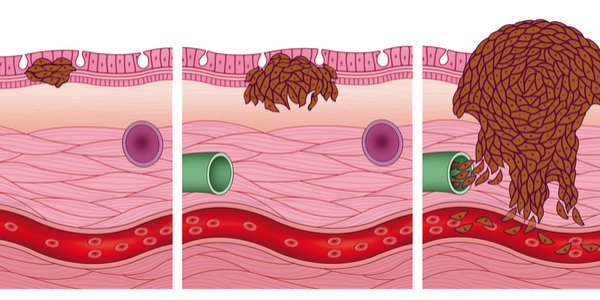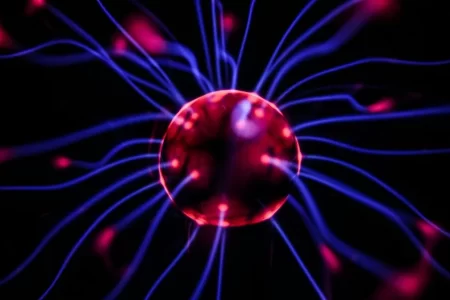Diagnosis of Alzheimer’s Disease (AD)
- Updated on: Apr 25, 2021
- 8 min Read
- Published on Apr 25, 2021


Alzheimer’s disease is the most common form of dementia and shows dementia-like conditions such as memory loss and cognitive skill disabilities. This disease is histologically characterized by accumulation of amyloid plaques and neurofibrillary tangles throughout the brain.
Alzheimer’s is not normal part of ageing, so if you or your closed one shows symptoms of the disease, you should ensure a proper diagnosis and screening of the disease for them to check any warning signs such as memory loss and difficulty in speech and decision making and behaviour changes.
The disease shows many signs and symptoms at early stage which may be same as of other disease conditions including such as anxiety, depression, results due to unhealthy diet, effects of medications etc. Therefore, doctors have to identify the symptoms carefully so as to identify whether those are due to Alzheimer’s or any other condition.
The test to diagnose Alzheimer’s accurately is not known till date. The judgement about the disease is based on signs and symptoms and information provided by the patient, and various other test reports by the doctors. Doctors can clarify and determine whether you have dementia due to Alzheimer’s or any other conditions.
Although, it is difficult to completely diagnose Alzheimer’s, in an estimated 90% cases, doctors and physician can correctly diagnose the condition based on various tests such as-
- History of mental and behavioral condition
- Physical examination and laboratory tests
- Neuropsychological test: to identify specific problem in mental function and behavior
The diagnosis of Alzheimer’s requires a careful medical evaluation and test by skilled physicians.
When to Visit a Doctor for Diagnosis?
If anyone is showing symptoms of dementia like memory loss and other cognitive skills dysfunction, consulting a doctor as soon as possible is necessary. This helps in the detection of the disease at an early stage and applying current medications and treatments which work well to control symptoms effectively at the early stages of the disease. Proper diagnosis and screening is done to check the symptoms whether it is AD AD or other disease conditions.
Once diagnosed with this disease, the next step is to find out treatment, support and care options for the patients.
Why Diagnosis of Alzheimer’s is Needed?
As we know, Alzheimer’s or dementia is a progressive disease, it will progress over a period of time and the symptoms may get worse in a person. So, a proper diagnosis is needed to rule out other dementia conditions as necessary. The following possibilities can be confirmed or ruled out through diagnosis by the doctors before starting any treatment:
- Check other conditions with similar symptoms as Alzheimer’s disease which may be treatable such as depression, vitamin deficiencies, thyroid problem, liver and kidneysdysfunction, chest infections and severe constipation.
- Identify possible causes of confusion, emotional and behaviour changes, being upset (due to house change or bereavement) and also to check whether it is due to side effect of certain drug or drugs combinations.
- Diagnose a person to clarify the causes of symptoms and rule out any confusion regarding possibilities of signs and symptoms. It removes uncertainty in patients and allowthem to begin adjusting to situations.
- Helps a person with dementia and Alzheimer’s to set plans and make arrangements for future.
- Helps to access proper treatment options for patients and gain information, support and advice especially on emotional, legal and financial advices and support.
How early Diagnosis of Alzheimer’s is Beneficial?
People feel reluctant to go to doctor when they or their family members have a memory problem. Some people also hide their symptoms. This happens because AD is associated with memory loss, loss of independency whether it is financial or personal, and people doubt about the benefits of the diagnosis and cure.
It’s true that this disease has no complete cure but diagnosis at an early stage and proper treatments may help a person to control many symptoms to some extent for a long period of time during the lifespan. Also, if a person has other disease conditions which are treatable, then it can possibly be cured and treated. Doctors also teach families and caregivers about strategies to enhance their living environment, plan activities and manage changes to minimize disease effects.
Above all, it helps you and your family to plan for future. You and your caregivers and your family get a chance to make decision on issues such as:
- Treatment and care options (residential and at-home)
- Decide future care and medical treatments.
- Make plans to handle financial issues.
- Take appropriate community services and support.
Diagnosis at Early Stage Helps Patients and Families to:
- Get more benefit from the treatment
- Get rid of anxiety and other problems
- Give time to develop relationship between caregivers and doctors
- Create support networks and benefit from it which makes disease management for both patients and families easier
- Chances of participating in advanced drug trials and research to test new possible treatments
How is the diagnosis of Alzheimer’s Done?
Accurate diagnosis of AD is important to enhance appropriate treatment options, family education, cares and plans for future. Early diagnosis and starting therapies and medicines help in controlling certain symptoms from getting worse on an average of 6-12 months in half of the people with this disease.
Doctors evaluate signs and symptoms and conduct several tests which assess memory impairments, thinking skill, judgement ability, and identify behaviourchanges to diagnose Alzheimer’s.
As it shows various signs and symptoms which one can also be seen in other brain abnormalities and disease conditions, one single test is usually not sufficient to determine and diagnose the disease completely. The following series of tests are done to identify a person with Alzheimer’s:
- Getting a thorough history of recent symptoms and medical condition of the patient
- Mental status testing
- Physical examinations and lab tests such as blood, urine and brain imaging to identify other causes of symptoms
- Neuro-psychological assessment
Memory loss alone doesn’t mean Alzheimer’s as many other health issues such as depression, drug interactions, thyroid problems, excess alcoholism, and vitamin deficiency may also cause dementia and these conditions may be reversed during the tests.
Getting Patient’s History
A doctor speaks to patients and their families, and friends to gain knowledge about patient’s emotional or mental condition, behavioural state as well as also to check development of symptoms and the family health history. Mostly, about 3 out of 4 cases of Alzheimer’s start with dementia (inability to remember recent events and memory lapse, learn and retain new information). Early-stage patients experience memory problems that interfere with daily living of the person, and it worsens consistently. These include symptoms such as loss of energy and spontaneity, difficulty in following instructions, managing money, abstract thinking etc. The physician helps distinguish the symptoms of AD from other types of dementia based on the problems and the speed of progression.
A physician may ask question and test the person about:
- Symptoms of the patient including difficulty in everyday tasks
- Other disease and medical conditions that a patient may have and the medications he may be taking
- Personal history of patient such as living condition, marital status, sexual history, important life events, employment etc. Also, family history is collected to know any disease that seems to run in the family
- Doctors ask a series of question to know about patient’s mental state and list out any mental condition like depression and anxiety
- Test on memory, attention, language and problem solving is conducted
- Blood test, urine test, and standard medical test are done to identify other possible causes of the symptoms
- Brain scans such as computed tomography (CT scan), positron emission tomography (PET) or magnetic resonance imaging (MRI scan) is done to find out other causes of the symptoms
Assessment Process and Testing
The procedure is based on physical conditions of a patient and neuropsychological assessments.
Physical Examination and Lab Test:
Doctors will likely check our neurological health by testing:
- Muscle tone
- Muscle strength and reflexes
- Sense of sight and hearing
- Coordination and balance
- Ability to walk and get up from chair
Physical examinations are performed by physician to identify other causes of dementia and symptoms occurring in a patient. This examination include tests such as blood pressure, heart rate, temperature, sight and hearing evaluation, urine test and brain scans (help to identify any tumour causing dementia or if it’s an Alzheimer’s).
Blood Tests: These test help in measuring:
Thyroid Function: It depicts whether thyroid gland is capable of producing sufficient amount of thyroid hormone or not which may cause dementia.
Vitamin B12 deficiency: Deficiency of vitamins and poor diet may also cause dementia-related condition in older people.
Brain scan and imaging
These tests help to identify other causes of dementia-related conditions such as tumour growth, blood accumulation around brain surface, and stroke etc. Scans also show structural changes in our brain that may define the characteristic feature of Alzheimer’s such as shrinking of the brain. Doctors may check electrical signalling activity in the brain by Electroencephalogram and sometimes the spinal fluid may be tested using a lumbar puncture test.
Alzheimer’s is a disease which causes progressive loss of brain neurons or brain cells. This damage to the brain cells can be shown in a variety of ways through brain imaging and scans. Doctors do not take brain scans alone to diagnose Alzheimer’s disease because there is a similarity between age-related changes in the brain and due to other brain abnormalities.
Brain imaging and scans helps to:
- identify other causes of dementia such as haemorrhages, stroke, and brain tumours
- define degree of degeneration of the brain cells
- differentiate between different brain abnormalities
Technologies Used in Brain Imaging
- Magnetic resonance imaging (MRI): MRI uses powerful radio waves and magnetic field to create a detailed image of the brain. It rules out any other abnormalities in the brain and detects any brain shrinkage which can happen due to Alzheimer’s.
- Computerized tomography (CT): Produces cross-section image of the brain by using X-rays.
- Positron emission tomography (PET): A tracer (a radioactive substance) is used to detect any substance in our body. A metabolic change pattern shows various types of degenerative brain diseases. Recently developed PET scan can detect plaques in the brain which can form in Alzheimer’s but this is typically used in research.
- Cerebrospinal fluid: In situations such as early-onset dementia or progressive dementia, an examination of cerebral fluid is done with the help of biomarkers that may indicate possibility of an Alzheimer’s disease.
Neuropsychological Assessment
In this test, doctors ask some basic questions to patients to assess their mental status. Some of these basic questions which can be asked are such as:
- What is the day today?
- Which month is this?
- Where are you sitting?
- Can you count numbers backwards from 50 or 100?
The test helps to assess and identify mental symptoms associated with a brain abnormality and an injury which may cause dementia. Doctors usually suggest specific tests based on the symptoms and how adverse they are. Generally, a brief screening method is used such as Mini-Mental Status Examination (MMSE). This tool helps to confirm whether a patient is suffering from any intellectual problems or not.
- MMSE tests include testing a patient’s attention, language and memory and also an ability to do mathematical calculations.
- If a person shows mild intellectual deficiency then other tests may be done to clarify whether it is Alzheimer’s or due to advanced age signs.
Other Diagnosis and Assessment Methods
For further detailed tests and assessments, a physician may refer a patient to a specialist and memory clinic in order to assess him on various criteria. These specialists can be such as:
- Nurse – A trained mental health nurse who is specialised in diagnosing and caring people with dementia and other mental conditions
- Psychologist – Specialised in diagnosis and treatment of mental health
- Psychiatrist – A doctor who is qualified in treating mental health conditions
- Neurologist – diagnoses and assesses nerve functioning in the body and treat conditions which affects nerve functions of the brain and the spinal cord
- Geriatrician – Trained in caring older people
- Social worker – They are trained members to give advice about assessing social services within the local areas of a patient
- Occupational therapist – He has a skill in supporting people with dementia and also in supporting their families in adjusting to the disability conditions
Diagnosis Methods of Future
Researchers in collaboration with doctors are working on developing advanced and new tools to diagnose Alzheimer’s disease accurately. Their major goal is to detect the disease earlier before symptoms appear and find a valid and inexpensive detection tool which can be used by the doctors in a clinic and an office.
New tools which are under investigation include –
- Advanced tool to approach brain imaging and scanning
- More sensitive and accurate test of mental abilities
- Protein measurement in blood and spinal fluid
- Genetic testing which is not recommended generally and is used to test people for an early onset of the disease usually.












